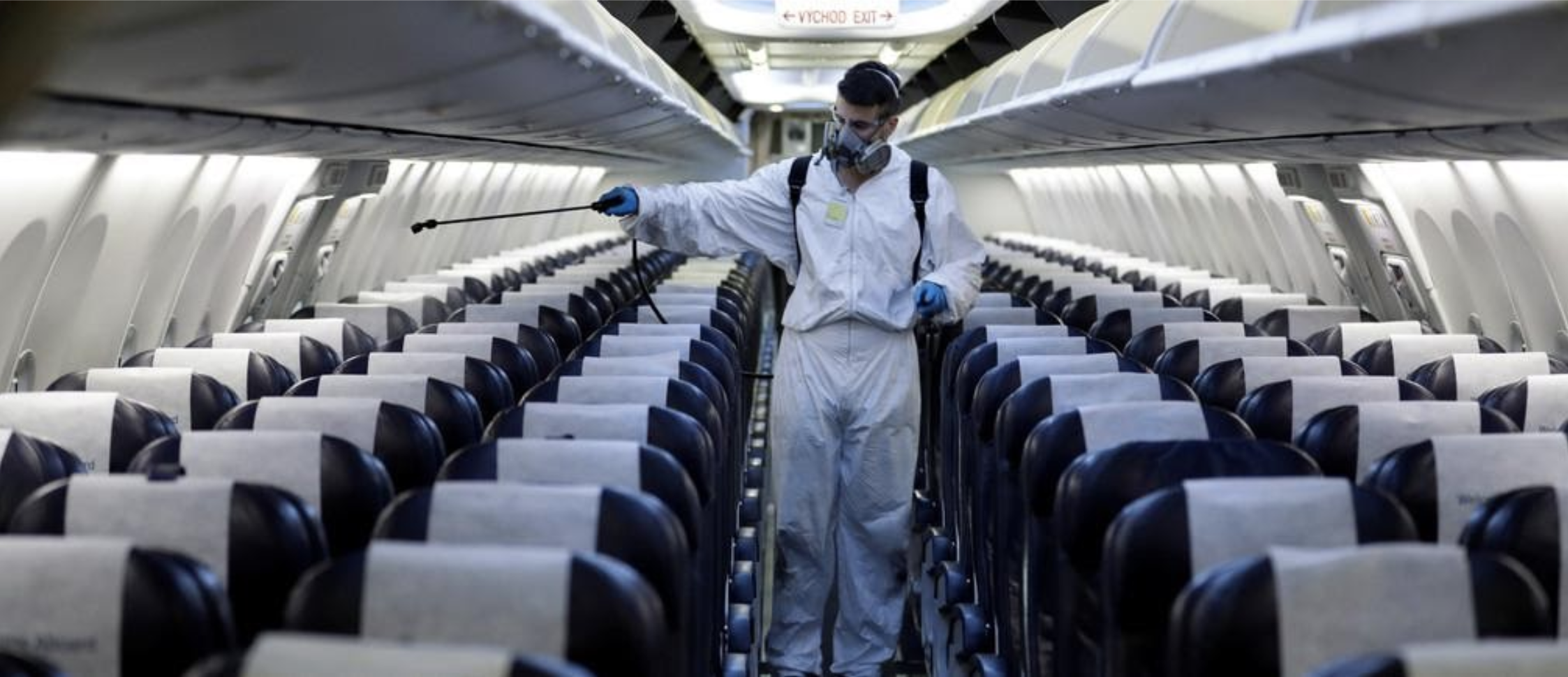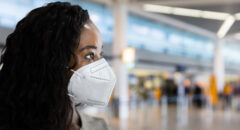 Research by Harvards’ T.H. Chan School of Public Health shows that aircraft cabins are among the safest of public indoor environments. A study recently conducted by the U.S. Department of Defense (DOD) supports the conclusion that the risk of COVID-19 exposure on board is minimal thanks to advanced air filtration systems, required mask-wearing – those without exhalation valves or vents, and diligent cleaning protocols.
Research by Harvards’ T.H. Chan School of Public Health shows that aircraft cabins are among the safest of public indoor environments. A study recently conducted by the U.S. Department of Defense (DOD) supports the conclusion that the risk of COVID-19 exposure on board is minimal thanks to advanced air filtration systems, required mask-wearing – those without exhalation valves or vents, and diligent cleaning protocols.
The study was completed by direct interaction with major manufacturers, airlines, and airports across the aviation spectrum, and covered everything from ventilation systems and modeling to real-world practices and challenges that airlines are facing, i.e customers not wearing masks, spatial challenges, etc.
The team also conducted an extensive review of documentation and carefully monitored emerging research about the virus. “I think we had a more comprehensive look at the entire system than any other report that’s been done,” he said.
Ever since last Spring when airlines announced the use of these measures, “there has been little evidence to date of onboard disease transmission,” according to Harvard researchers.
This investigation finds that the risk of SARS-CoV-2 transmission on an aircraft is reduced to very low levels through the combination of layered infection control measures.
Their report notes that when the “highly effective” ventilation systems are running from boarding until deplaning, and when air is recycled properly during the flight the risk of exposure falls greatly in comparison to daily activities like grocery shopping and dining out.
Read Harvard’s study
Read U.S. Department of Defense’s study







